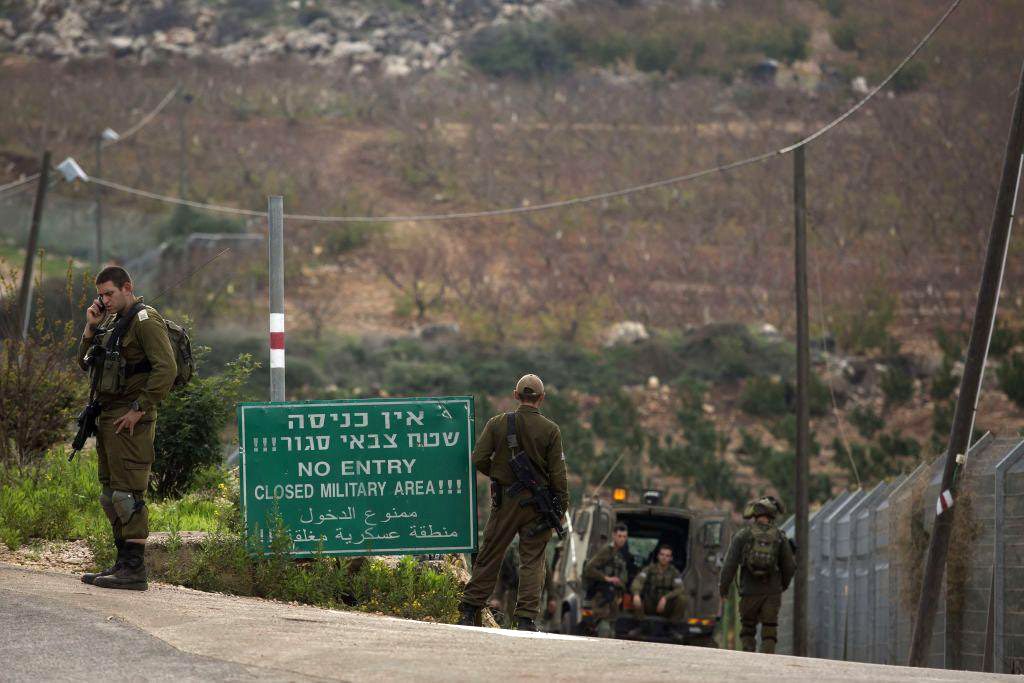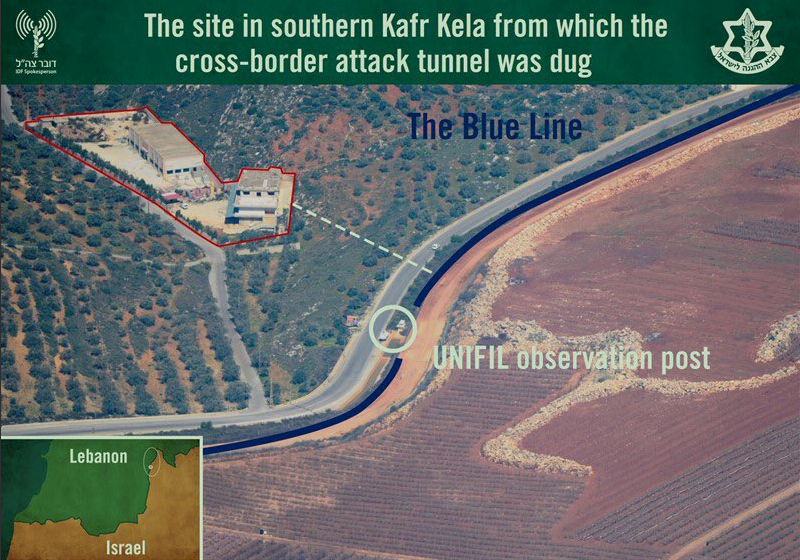RESOURCES
Fast Facts: Israel’s “Operation Northern Shield” to destroy Hezbollah tunnels from Lebanon
December 6, 2018 | AIJAC staff

On Tuesday December 4, the Israeli Defence Forces (IDF) announced the launch of “Operation Northern Shield” to expose and neutralise cross-border attack tunnels dug by the Iranian-backed terror group Hezbollah from Lebanon into Israel. At this time, the operation is being conducted entirely inside Israeli territory.
- On Tuesday morning, the first such tunnel was discovered. It had been dug underneath a home in the Kafr Kila area of south Lebanon. Dug to a depth of 25 metres underground, two metres wide, the tunnel was two metres tall, and 200 metres long, of which a full 40 metres stretched into Israeli territory.
- The IDF said it believed the tunnel, which included ventilation and electrical systems had been quarried out of bedrock over the past two years and that an unspecified number of others are thought to exist. Israeli army spokesman Lieutenant Colonel Jonathan Conricus stated that the exposed tunnel, which had been built for offensive purposes, was not yet operational and did not pose an immediate threat.
- The IDF has claimed the purpose of the tunnel was to cut off the town of Metulla, which lies at the northern tip of the Galilee panhandle, from the rest of Israel.
- Footage released by Hezbollah overnight suggests the IDF may have found a second tunnel near Moshav Zar’it, in the central party of the Israel-Lebanon border.
- The IDF estimates that there may be ten Hezbollah tunnels in all, according to media reports, and predict that the current operation will last several weeks.

Tunnel video
- The announcement came hours after Israeli Prime Minister Benjamin Netanyahu met with US Secretary of State Mike Pompeo in Brussels over regional dangers, including the activities of Iran.
- “We are acting with determination to prevent Iran from being rooted in Syria… we are also acting against Iran’s terrorist actions in Lebanon”, Netanyahu said. A statement from the US State Department said that Pompeo “emphasised the United States’ commitment to Israel’s security and absolute right to self-defence” and “reiterated America’s resolve in confronting the totality of the Iranian regime’s threats through maximum pressure”.
- After the discovery of the tunnel, Netanyahu and Pompeo discussed the imposition of new sanctions against Hezbollah. According to top Israeli military analyst Ron Ben-Yishai, Mossad director Yossi Cohen, National Security Adviser Meir Ben Shabbat and Netanyahu’s military secretary also took part in the meeting, and “it is safe to assume Netanyahu asked for the meeting to warn the United States about the Operation Northern Shield to clear the tunnels, which can, of course, develop into a major war if Hezbollah decides to retaliate.”
- During a televised address at the Defence Ministry in Tel Aviv on Tuesday, Netanyahu called the Hezbollah cross-border tunnels “a flagrant violation of Israeli sovereignty and UN Security Council Resolution 1701” (the resolution that ended a 2006 war between Israel and Hezbollah). “The Hezbollah terror tunnels were built by Hezbollah with the direct support and funding from Iran. They were built with one purpose in mind – to attack and murder innocent Israeli men, women and children… Hezbollah is committing a double war crime. They target civilians while hiding behind civilians”.
- Netanyahu said he would discuss the matter with world leaders in the coming days and that he was seeking an urgent meeting of the UN Security Council against Hezbollah and its actions. He said that Israel “holds the Lebanese government responsible for all activities perpetrated in Lebanon towards Israel”.
- The IDF called up a small number of reservists, as it prepared for a potential retaliation by Hezbollah in response to the operation.
- No special instructions were issued for Israeli civilians in the area, but local municipalities were preparing public bomb shelters as a precaution against potential attacks by Hezbollah.
- US President Donald Trump’s Administration gave its full backing to the operation, with National Security Adviser John Bolton saying “we call on Iran and all of its agents to stop their regional aggression and provocation, which pose an unacceptable threat to Israeli and regional security”. The United States “strongly supports Israel’s efforts to defend its sovereignty”.
- According to Lt. Col. Conricus, the tunnels were part of a Hezbollah plan from 2012 to “shift the battlefield to Israel” and “conquer the Galilee” in a future conflict by infiltrating its territory. In 2013, the army acted on reports that Hezbollah was digging tunnels, but failed to locate any, he said.

Recently, Hezbollah hosted the same wall in the village of Kila, where an offensive tunnel was set up, and commanders from the Shi’ite militias sponsored by Iran. In Israel, this was defined as “terrorist tourism” – field trips in case the militias were required to support the raid of Hezbollah’s “Radwan Force” on the front against Israel
- Since its last war in 2006, Hezbollah has strengthened its military capabilities significantly with an estimated arsenal of more than 130,000 short and medium-range missiles and rockets, as well as several hundred long-range missiles trained on the Jewish State.
- In September, the IDF unveiled 11 kilometres of what is planned to be a 130-kilometre defensive wall stretching the length of the Lebanon-Israel frontier, equipped with cameras in the hope of thwarting any attempt by its enemy Hezbollah to infiltrate and attack.
- Following the 2014 war between Israel and Gaza, in which the Palestinian Islamist movement Hamas used cross-border attack tunnels, the army said it found intelligence that “Hezbollah and Hamas share knowledge” and soon after began intensive work to prevent tunnels from Lebanon.
- Last month, after Hamas responded to a botched IDF operation in Gaza by launching 460 rockets into Israel in one day, the IDF struck back at Gaza, but the Security Cabinet quickly agreed to a ceasefire without a vote. Analysts now believe that the Hezbollah tunnel discovery was already on the IDF’s radar and one of the major reasons Netanyahu was so keen on avoiding an escalation with Hamas at that time and why an Israeli government coalition crisis was suddenly quelled.
- A senior cabinet source confirmed on Sunday that the north is the operative priority, and that the area is of greater sensitivity than Gaza, because of the continuing need to attack when Iran attempts to expand its presence in Syria. Therefore, Israeli ministers decided it was not worth risking a greater escalation in Gaza.
- Iran launched a new warship and tested a ballistic missile in the days before Israel launched “Operation Northern Shield”. Hezbollah released a video threatening sites throughout Israel. In addition, tensions in Syria have risen after a mysterious air strike south of Damascus last Thursday. Hezbollah claimed its fighters were not hurt in that air strike.





